Speaker
Description
The presence of some specific fungal spores in a public place is becoming a serious health issue in many parts of the world. The allergenic potential of fungal spores and its sensitization in the local population is increasing after COVID-19 pandemic. An investigation regarding the concentration and seasonal occurrence of fungal aeroallergens at selected public places was carried out for two years in different cities of Pakistan. The high concentration of fungal spores belonging to Aspergillus, Alternaria, Fusarium, Mucor, Rhizopus, Penicillium, Cladosporium, Phoma and Epicocum were isolated from the air around the public places. The quantitative and qualitative analysis of isolated aerial fungal species revealed that maximum spore concentration was calculated from April to October. The clinical record of regular visitors of these sites revealed that the number of patients having respiratory disorders have been increased. The fungal species of Aspergillus, Mucor, Rhizopus, Penicillium, Phoma and Alternaria were dominant in all selected places. The seasonal variations in fungal spores was also recorded, and some fungal spores were restricted to specific metrological conditions. The presence of fungal spores having allergenic potential may cause serious health concerns as sensitization to bioaerosols has been increased after COVID-19 pandemic.

